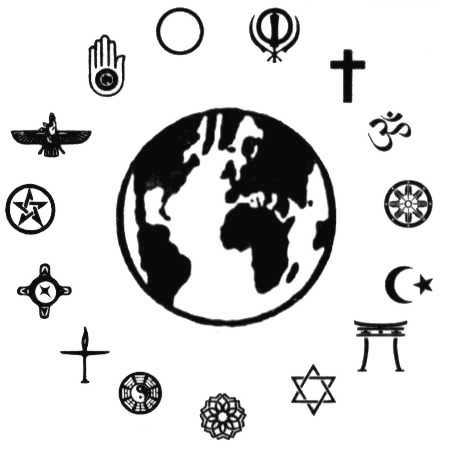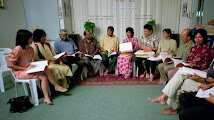Seeking insights through study
Every experience we have can imbue us with new insights. But what are the purposes of the insights gained? Surely they are given us to be applied - notably, according to Bahá'u'lláh, for the betterment of the society in which we live and for the benefit of all may cross our path.
In order to apply this new knowledge, we need to translate it into modes/schemes of practical action (i.e., to 'operationalize' them). This, I imagine, should ideally become a habit we make ourselves - to ever be on the lookout for creative means by which we can put these insights to the test, so to speak, in real-world situations.
How long can we wait before applying them? Clearly, any delay puts us at risk of forgetting them, allowing these fleeting 'gifts of the spirit' to slip from our minds and become lost in oblivion.
The best way to grasp an idea and strengthen our knowledge of a thing is, as is known, by teaching and demonstrating it to others. Interestingly enough, however, and well worth noting in this regard, is that our attitude in, and motive for sharing our knowledge influences directly the learning outcome both for ourselves and for our hearers. According to the Holy Books, unless our motive be to serve God, our every endeavor will be without result. The spirit that's required is thus described in the Qur'án: "We nourish your souls for the sake of God; We seek from you neither recompense nor thanks." (76:9)
In the words of 'Abdu'l-Bahá:--
If one teaches one whom he loves because of his love for him, then he will not teach one whom he loves not; and that is not of God. If one teaches in order to derive the promised benefit to himself, this too is not from God. If he teaches because of God's Will that God may be known -- and for that reason only -- he will receive knowledge and wisdom, and his words will have effect -- being made powerful by the Holy Spirit -- and will take root in the souls of those who are in the right condition to receive them. In such a case the benefit to the teacher in growth is as ninety percent compared to the ten percent of gain to the hearer, because he becomes like a tree bearing fruit through the power of God.
('Abdu'l-Bahá, cited in Star of the West - source is here)
As to the imperative to ourselves study, then apply the knowledge gained, a letter written on behalf of Shoghi Effendi states:--
He urges you to study deeply the teachings, teach others, study with those [believers] who are anxious to do so, the deeper teachings of our Faith, and through example, effort and prayer, bring about a change.
(Letter written on behalf of Shoghi Effendi. #1323 in Living the Life)
'Abdu'l-Bahá's thus appeals to us to let words be followed by action:--
Put into practice the Teaching of Bahá'u'lláh, that of kindness to all nations. Do not be content with showing friendship in words alone, let your heart burn with loving kindness for all who may cross your path. ...
[L]et your manner be sympathetic. Let it be seen that you are filled with universal love. When you meet a Persian or any other stranger, speak to him as to a friend; if he seems to be lonely try to help him, give him of your willing service; if he be sad console him, if poor succour him, if oppressed rescue him, if in misery comfort him. In so doing you will manifest that not in words only, but in deed and in truth, you think of all men as your brothers.
What profit is there in agreeing that universal friendship is good, and talking of the solidarity of the human race as a grand ideal? Unless these thoughts are translated into the world of action, they are useless.
The wrong in the world continues to exist just because people talk only of their ideals, and do not strive to put them into practice. If actions took the place of words, the world's misery would very soon be changed into comfort.
('Abdu'l-Bahá, Paris Talks, p. 16)
What, then, of remembrance? Couldn't one say, in a sense, that all we experience and do in life is but various means by which we may remember the One True God? Hence the need for action, that we may fulfill the purpose of our lives on this earth.
Now is the time, O ye beloved of the Lord, for ardent endeavor. Struggle ye, and strive. And since the Ancient Beauty was exposed by day and night on the field of martyrdom, let us in our turn labor hard, and hear and ponder the counsels of God; let us fling away our lives, and renounce our brief and numbered days. Let us turn our eyes away from empty fantasies of this world's divergent forms, and serve instead this pre-eminent purpose, this grand design. ...
Let us not consent that the splendors of the Sun of Truth should ever fade and disappear. These are the admonitions of God, as set forth in His Holy Books, His Scriptures, His Tablets that tell out His counsellings to the sincere. ...
Photo Copyright Bahá'í International Community. View here. 


























